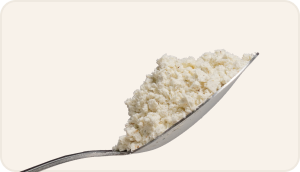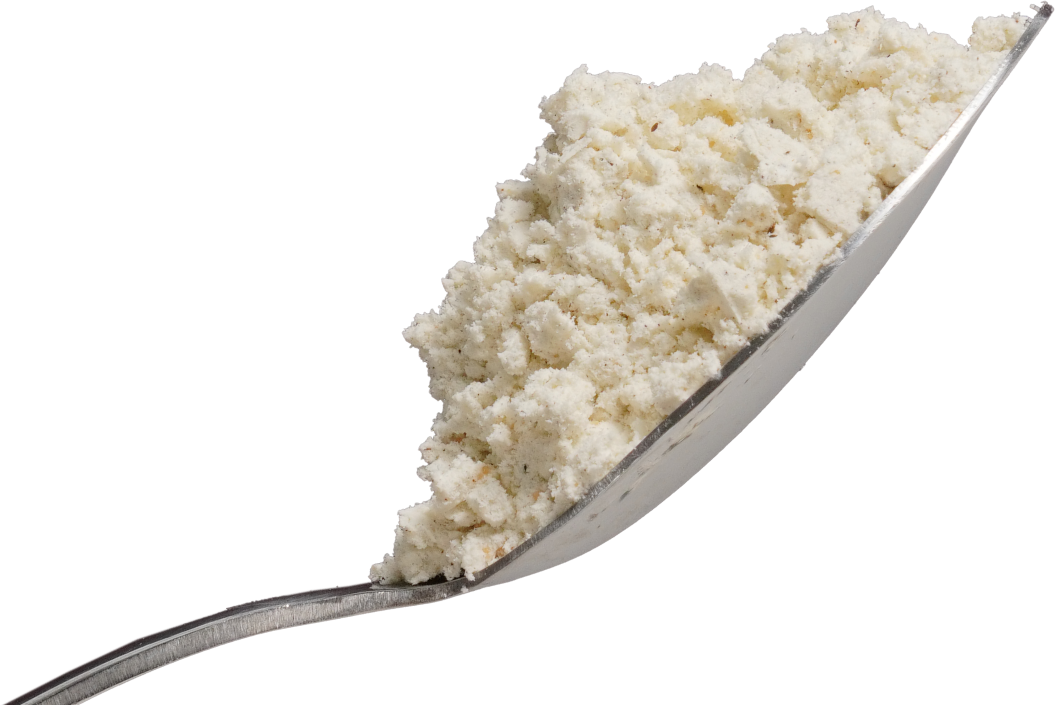GRAB A PACK
Not Sure?
Try Our Sample Pack
Egg Protein vs. Whey Protein: Which One is Better?
Introduction
Protein is an essential macronutrient that plays a crucial role in building and repairing tissues in the body. Athletes, fitness enthusiasts, and health-conscious individuals often supplement their diet with protein powder to meet their daily protein needs. However, with so many different protein powder types available, choosing the right one for your health and fitness goals can take time.
In this blog post, we will focus on two popular types of protein powder: egg protein and whey protein. We will discuss the differences between these two types of protein, their benefits, and how they can affect muscle building, weight loss, and sensitive stomachs. We will also provide an overview of the nutrients found in egg protein and whey protein, the digestive process, and how protein is broken down. By the end of this post, you will better understand which protein powder may be a better fit for your dietary needs and fitness goals.
As a reference, we will use Happy Gut, a health and wellness brand offering a clean and effective protein powder supplement made with natural ingredients, including egg white protein. Happy Gut's protein powder is free from soy, gluten, artificial colors, sweeteners, lactose, and sugar alcohol.
How are Egg Protein and Whey Protein Different?
Egg protein and whey protein are widely used in different food products and dietary supplements due to their high-quality protein content and various benefits. These proteins have unique characteristics and features that make them suitable for other individuals and purposes.
One of the key differences between the two is their absorption rate. Whey protein is a fast-digesting protein quickly absorbed by the body, making it an ideal protein source for post-workout recovery. In contrast, egg protein is a slow-digesting protein absorbed gradually by the body, providing a sustained release of amino acids over a more extended period. This makes egg protein a good choice for people looking for a protein source to help them feel fuller for extended periods.
Another difference between the two proteins is their amino acid profile. Egg protein is a complete protein, which means it contains all nine essential amino acids required by the body. Whey protein is also a complete protein but contains a higher percentage of branched-chain amino acids (BCAAs) than egg protein. BCAAs are essential amino acids that have been shown to impact muscle protein synthesis and recovery positively.
In terms of taste and texture, whey protein is often preferred due to its smooth and creamy consistency, while egg protein can be thicker and slightly grainy. However, this can vary depending on the specific product and the manufacturing process used.
The choice between egg and whey protein largely depends on individual preferences, dietary restrictions, and fitness goals. Both proteins can be beneficial for muscle growth and recovery, and incorporating various protein sources in the diet can help ensure an adequate intake of essential amino acids.
Benefits of Egg Protein
Egg protein offers several benefits, making it an excellent choice for people looking to increase their protein intake. Here are some of the benefits of egg protein:
- High-quality protein: Egg protein is a complete protein that contains all the essential amino acids required by the body. The protein in an egg is easily digestible and has a high biological value, meaning that it is used efficiently by the body for growth and repair.
- Promotes muscle growth: Egg protein is rich in leucine, an essential amino acid that promotes muscle protein synthesis. Consuming egg protein after a workout can help stimulate muscle growth and repair.
- Satiety: Eating a high-protein diet, such as one that includes egg protein, can help reduce hunger and increase satiety, leading to reduced calorie intake and potential weight loss.
- Low in fat and carbs: Egg protein is low in fat and carbs, making it an ideal choice for people looking to increase their protein intake without adding unnecessary calories.
- Good source of vitamins and minerals: Eggs are a good source of several vitamins and minerals, including vitamin D, vitamin B12, selenium, and choline, which are essential for various functions in the body.
- Allergy-friendly: Unlike whey protein, egg protein is lactose-free, making it an excellent choice for people with lactose intolerance or a milk allergy.

Benefits of Whey Protein
Whey protein has many health benefits, which is why it is popular among athletes and fitness enthusiasts. Here are some of the key benefits of whey protein:
- Muscle Growth: Whey protein is a complete protein that contains all nine essential amino acids needed for muscle growth and repair. It is exceptionally high in leucine, an amino acid that triggers muscle protein synthesis, making it an ideal choice for anyone looking to build muscle mass.
- Weight Management: Whey protein is low in calories and fat, making it a perfect supplement for losing weight. It helps reduce appetite and increase feelings of fullness, leading to reduced calorie intake and a more effective weight loss plan.
- Lower Blood Pressure: Some studies have shown that consuming whey protein can help to reduce blood pressure in people with high blood pressure. This may be due to bioactive peptides in whey protein that help dilate blood vessels and improve blood flow.
- Improved Bone Health: Whey protein contains high calcium levels essential for strong and healthy bones. It also has other vital nutrients for bone health, including vitamin D and phosphorus.
Protein Types and Absorption
The protein absorption rate is an essential factor to consider when selecting a protein supplement. Protein absorption is the process by which proteins are broken down and absorbed by the body. The speed of protein digestion and absorption can vary depending on the type of protein consumed.
Whey protein is a fast-absorbing protein quickly broken down and absorbed by the body. This makes it an ideal protein source for post-workout recovery, as it can soon deliver amino acids to the muscles that need them. In contrast, egg protein is considered a moderate-absorbing protein. It takes longer to digest than whey protein but is still faster than other protein sources like casein. This makes it a good option for sustaining protein synthesis throughout the day and promoting muscle growth.
Slow-absorbing proteins like casein, on the other hand, are ideal for consumption before bedtime. Casein is a type of protein that forms a gel-like substance in the stomach, slowing digestion and absorption down. This slow digestion rate provides a steady supply of amino acids to the muscles over several hours, which can help to prevent muscle breakdown during periods of fasting, such as during sleep.
A mixture of protein types with varying digestion rates is recommended for optimal muscle growth and recovery. This can be achieved by consuming a blend of protein sources, such as whey and casein, or alternating between protein sources throughout the day.
Digesting Protein
Digestion of protein is a complex process that involves several steps. The first step is the breakdown of large protein molecules into smaller peptides, which are composed of amino acids. This process is facilitated by enzymes in the stomach, such as pepsin, which is activated by the stomach's acidic environment. The peptides are further broken down into amino acids by enzymes in the small intestine, including trypsin, chymotrypsin, and carboxypeptidase.
Once the amino acids are released from the peptides, they are absorbed into the bloodstream through the walls of the small intestine. From there, they are transported to the liver, where they are processed and distributed to the rest of the body for use in building and repairing tissues and other metabolic processes.
The rate of protein digestion and absorption can vary depending on several factors, including the type of protein, the presence of other nutrients, and individual differences in digestive function. For example, whey protein is known to be rapidly absorbed, while casein protein is absorbed more slowly. Additionally, other nutrients, such as carbohydrates and fats, can influence the rate of protein digestion and absorption.
Digesting and absorbing protein is essential for maintaining overall health and supporting various bodily functions. Adequate protein intake is necessary for individuals engaging in regular physical activity or trying to build or maintain muscle mass.
Egg Protein vs. Whey Protein for Muscle Building
While both egg protein and whey protein are high-quality sources of protein, they differ in their amino acid profile and digestion rate, which can impact their effectiveness for muscle building. For muscle building, egg protein has several advantages over whey protein.
First, egg protein has a high concentration of leucine, an essential amino acid that plays a critical role in muscle protein synthesis. Leucine stimulates muscle protein synthesis by activating a pathway called the mammalian target of rapamycin (mTOR), which promotes muscle growth. Egg protein contains about 2.7 grams of leucine per 25-gram serving, similar to whey protein.
Another advantage of egg protein for muscle building is its slower digestion rate than whey protein. The slower digestion rate of egg protein provides a sustained release of amino acids to the muscles, which can help promote muscle protein synthesis over a more extended period. In contrast, whey protein is quickly absorbed and digested, leading to a rapid spike in amino acid levels in the blood, followed by a rapid decline.
However, whey protein has some benefits for muscle building that egg protein may not. For example, whey protein has a faster digestion rate than egg protein, which makes it an excellent choice for post-workout recovery. Whey protein is also rich in branched-chain amino acids (BCAAs), particularly leucine, which can further stimulate muscle protein synthesis.
In summary, egg and whey proteins have unique advantages for muscle building. However, egg protein may be the better choice if you are looking for a sustained release of amino acids and a high concentration of leucine.

Egg Protein vs. Whey Protein for Weight Loss
When it comes to weight loss, both egg protein and whey protein can be beneficial in helping to shed unwanted pounds. However, some differences between the two types of protein may make one more effective than the other for weight loss.
Egg protein is an excellent choice for those looking to lose weight as it is high in protein and low in calories. One large egg contains only about 70-80 calories and provides about 6 grams of protein, making it an excellent option for limiting its calorie intake. Additionally, egg protein has been shown to help promote feelings of fullness and reduce hunger, which can lead to a reduction in calorie intake and ultimately aid in weight loss.
On the other hand, whey protein has been shown to be more effective for weight loss than egg protein. This is because whey protein is a complete protein containing all nine essential amino acids that the body cannot produce on its own. These amino acids are necessary for maintaining muscle mass, vital to keeping the metabolism high and burning calories. In addition, whey protein has been shown to help increase metabolism and promote fat-burning, making it an excellent option for those looking to lose weight.
Overall, egg protein and whey protein can be beneficial for weight loss, but whey protein may be a better choice due to its ability to burn fat and maintain muscle mass. However, it is essential to note that the most effective way to lose weight is through a healthy diet and regular exercise.
Egg Protein vs. Whey Protein for Sensitive Stomachs
For those with sensitive stomachs or lactose intolerance, egg protein may be better than whey protein. Whey protein is derived from milk and contains lactose, a sugar many people have difficulty digesting. This can lead to digestive discomforts, such as bloating, gas, and diarrhea.
On the other hand, egg protein is lactose-free and is generally well-tolerated by those with sensitive stomachs. It is also a complete protein, meaning it contains all nine essential amino acids the body needs but cannot produce on its own.
Egg protein is also a good source of vitamins and minerals, such as vitamin A, vitamin B12, and selenium, which are essential for overall health. Additionally, egg protein has been shown to promote feelings of fullness and reduce appetite, which can benefit weight loss.
However, it's important to note that some people may still have an allergic reaction to egg protein, so it's essential to consult with a healthcare provider before incorporating it into your diet, especially if you have a history of food allergies.
Egg Protein vs. Whey Protein for Paleo Diet
Egg and whey protein are popular supplements for individuals following a paleo diet. The paleo diet involves eating whole, unprocessed foods and avoiding dairy and grains. As a result, egg and whey protein can be good sources for those following this diet.
Egg protein is considered a better option for those following a paleo diet since it is a whole food and does not contain additives or fillers. It is also a great source of high-quality protein, essential vitamins, and minerals for overall health. Moreover, egg protein is easily digestible and can be consumed in different forms like protein powders, hard-boiled eggs, egg whites, etc.
On the other hand, whey protein is a processed food and may contain additives, sweeteners, and flavorings, which may not align with the paleo diet. However, some whey protein powders are made from grass-fed cows and contain fewer additives, making them a better option for those following a paleo diet.
In conclusion, egg protein is more suitable for those following a paleo diet since it is whole food and contains all the essential nutrients required for overall health. However, some whey protein powders can be consumed as long as they are made from grass-fed cows and contain minimal additives.
How to Choose Between Egg Protein and Whey Protein
Several factors should be considered when deciding between egg protein and whey protein, including individual dietary needs, personal preferences, and fitness goals.
For those with dairy or lactose sensitivities, egg protein is an excellent option because it is dairy-free and low in lactose. On the other hand, individuals who can tolerate dairy may prefer the taste and convenience of whey protein.
When it comes to muscle building, both egg and whey proteins are effective in increasing muscle mass, but whey protein may have a slight edge due to its faster absorption rate. However, egg protein may be a better option for those looking for sustained protein release and longer-lasting fullness.
For weight loss, both egg and whey proteins can be effective, but egg protein may be a better choice due to its ability to promote feelings of fullness and reduce appetite.
For those following a paleo diet, egg protein is the clear choice since it is derived from a whole food source and contains no added artificial ingredients.
When choosing between egg protein and whey protein, it is also essential to consider the quality of the protein and the manufacturing process used. Look for protein powders sourced from high-quality ingredients, free from artificial additives, and manufactured using ethical and sustainable practices.
Ultimately, the decision between egg protein and whey protein comes down to personal preferences, fitness goals, and dietary needs. Try both and evaluate how they impact your body and performance before deciding on a preferred option.
Conclusion
In conclusion, egg protein and whey protein are both high-quality sources of protein that offer numerous health benefits. Egg protein is a complete protein source and has a lower risk of causing digestive issues. It is also suitable for those on a paleo diet. On the other hand, whey protein is quickly absorbed and is effective for muscle building and weight loss. It is also a convenient and versatile option for those on the go.
When choosing between egg and whey protein, you must consider your goals, dietary restrictions, and personal preferences. Both options can be beneficial, but one may be more suitable for you based on your needs. Consult with a healthcare professional or a registered dietitian to determine which option would be best for you.
Ultimately, whether you choose egg protein or whey protein, incorporating a high-quality protein supplement into your diet can effectively support your fitness and health goals. With the right combination of diet, exercise, and supplementation, you can optimize your nutrition and achieve the results you're looking for.


















